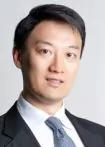The Department of Justice recommended Tuesday that a California judge impose a $1 billion fine on AU Optronics, a Taiwanese LCD screen manufacturer convicted of price-fixing in May. The DOJ also asked that the judge sentence former AUO president Hsuan Bin Chen and former executive vice president Hui Hsiung to 10 years in prison, and levy individual fines of $1 million against each of them.
The recommended penalties, if approved by the court, would be the largest criminal penalties ever imposed by an American court in an antitrust case. The billion-dollar fine would double the previous record fine of $500 million, and the ten-year prison terms would each be six years longer than the longest prison sentence ever received by an antitrust defendant.
AUO's coconspirators received light punishments relative to those currently being recommended by the Justice Department. LG Phillips, Sharp, and Chunghwa paid fines totaling $585 million. Of the ten executives from AUO's coconspirator corporations that were sentenced to prison, one served fourteen months in prison, while the other nine received sentences of less than one year.
AUO faces more severe penalties because they chose to go to trial, rather than settling with the antitrust authorities. The Justice Department wrote that such penalties were warranted for AUO because AUO "refused to cooperate, assist the investigation, or accept responsibility." Because of the huge sums of money that can be involved in antitrust cases such as this one, the effect of this policy is to erect a substantial barrier for companies seeking to force the government to prove its case at trial rather than to settle in advance of trial. It also leaves a lingering question as to whether the policy is unfair, as companies ultimately forgo the right to trial by jury by the mere fact that – if they take that approach – they face the prospect of monumental penalties that far outstrip those facing settling co-conspirators.
The content of this article is intended to provide a general guide to the subject matter. Specialist advice should be sought about your specific circumstances.



